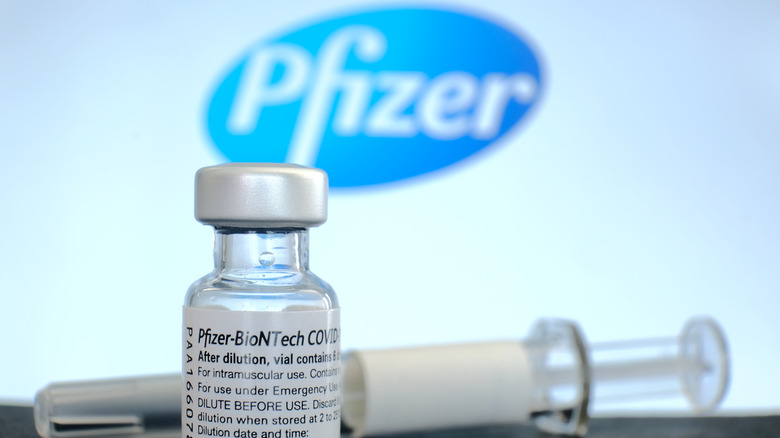How Effective Is The Pfizer Vaccine Against Severe COVID-19?
Perhaps one of the most challenging aspects of the pandemic has been trying to understand risk factors for infection as well as the severity of those infected in various populations. While no vaccine is 100% effective at preventing COVID-19, strong evidence shows they can reduce symptom severity and hospitalizations. But what's the difference between a severe COVID-19 symptom versus a mild or moderate one?
Most of us know that mild symptoms include fever, cough, sore throat, muscle pain, and headache. Moderate cases may be marked by lung infection, pneumonia, or other respiratory inflammation. About 80% of COVID-19 cases fall into the mild and moderate category, according to WebMD. Severe infection, however, affects both lungs, which can fill with fluid and debris. This makes it harder for the individual to breathe and get the necessary oxygen. Severe infection rates make up about 14% of all cases, per WebMD. Critical COVID-19 arises in about 5% of total cases and is marked by respiratory failure, septic shock, and other organ failure, as highlighted in a study in Annals of Intensive Care.
It is highly effective at preventing hospitalizations
Studies show that the Pfizer vaccine's effectiveness is higher in preventing severe symptoms and hospitalizations than it is in preventing infection altogether. Vaccine protection against infection steadily declines from 88% after the first month of receiving the Pfizer vaccine to 47% five months after vaccination (via The New York Times). However, a Pfizer-funded study found that the vaccine is 90% effective at preventing hospitalizations for up to six months, despite the widespread prevalence of the delta variant (via The Lancet).
In fact, epidemiologists suggest that the vaccine can offer substantial protection against the delta variant, which is believed to be twice as contagious and more likely to hospitalize infected individuals, according to Yale Medicine. Experts suggest those who are unvaccinated have the greatest risk of developing the most severe symptoms and outcomes. Thus, infectious disease specialists suggest the adoption of the vaccine may be even more effective for variants like delta, as they'll likely continue emerging over time.


